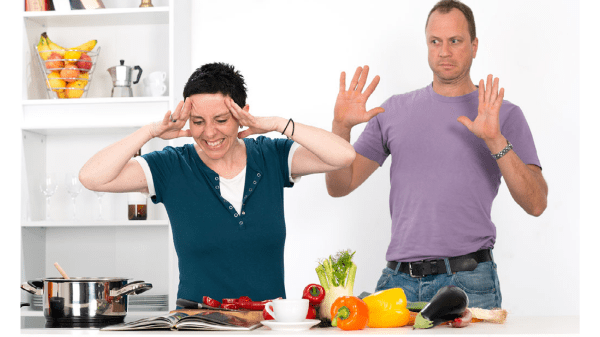
The produce industry has done a good job showing Americans that fresh fruits and vegetables are good for them.
It can’t congratulate itself quite so grandly on convincing people to change their eating behavior.
The Washington Post offers one comparatively simple method.
It’s a means of training yourself to eat something healthy—such as fresh fruit—when you’re stressed instead of junky, salty, fatty foods.
It starts with a six-minute process called progressive muscle relaxation: you simply tighten and then relax the muscles of your body from toes to head.
About five minutes into this process, eat a serving of fresh fruit such as pineapple, honeydew, or pears. Items that are less familiar to you (such as mangos, starfruit, or kiwi) will work still better.
Then complete the relaxation process.
The reasoning is simple: the brain connects any two things that it experiences at the same time. After about a week or so, you will start to associate fresh fruit with relaxation. You’ll be more likely to turn to it instead of junk food.
Soon eating the fruit itself will calm stress, even when you don’t go through the muscle relaxation process.
Stress doesn’t contribute to the addition of body fat merely by triggering you to stuff Fritos into your mouth. Stress stimulates cortisol production in the body, sending it into flight-or-fight mode. Chronic stress keeps cortisol levels high, speeding the production of body fat.
“Even if you don’t change a single thing that you eat, the fact that you are stressed is going to promote fat deposition,” says A. Janet Tomiyama, the head of the Dieting, Stress and Health Lab at the University of California at Los Angeles.
So, if you can reduce chronic stress while conditioning your mind to eat healthier foods at the same time, you have a double shot at improving your health.
This method seems simple and ingenious, not only for implementing healthy eating, but for promoting it.
The produce industry no longer needs to convince the public that it should eat more fresh fruits and vegetables. It needs to show them how.
The produce industry has done a good job showing Americans that fresh fruits and vegetables are good for them.
It can’t congratulate itself quite so grandly on convincing people to change their eating behavior.
The Washington Post offers one comparatively simple method.
It’s a means of training yourself to eat something healthy—such as fresh fruit—when you’re stressed instead of junky, salty, fatty foods.
It starts with a six-minute process called progressive muscle relaxation: you simply tighten and then relax the muscles of your body from toes to head.
About five minutes into this process, eat a serving of fresh fruit such as pineapple, honeydew, or pears. Items that are less familiar to you (such as mangos, starfruit, or kiwi) will work still better.
Then complete the relaxation process.
The reasoning is simple: the brain connects any two things that it experiences at the same time. After about a week or so, you will start to associate fresh fruit with relaxation. You’ll be more likely to turn to it instead of junk food.
Soon eating the fruit itself will calm stress, even when you don’t go through the muscle relaxation process.
Stress doesn’t contribute to the addition of body fat merely by triggering you to stuff Fritos into your mouth. Stress stimulates cortisol production in the body, sending it into flight-or-fight mode. Chronic stress keeps cortisol levels high, speeding the production of body fat.
“Even if you don’t change a single thing that you eat, the fact that you are stressed is going to promote fat deposition,” says A. Janet Tomiyama, the head of the Dieting, Stress and Health Lab at the University of California at Los Angeles.
So, if you can reduce chronic stress while conditioning your mind to eat healthier foods at the same time, you have a double shot at improving your health.
This method seems simple and ingenious, not only for implementing healthy eating, but for promoting it.
The produce industry no longer needs to convince the public that it should eat more fresh fruits and vegetables. It needs to show them how.
Richard Smoley, contributing editor for Blue Book Services, Inc., has more than 40 years of experience in magazine writing and editing, and is the former managing editor of California Farmer magazine. A graduate of Harvard and Oxford universities, he has published 12 books.




